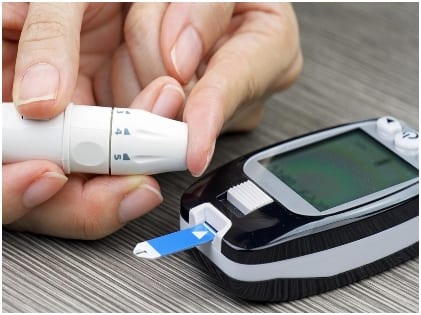 Diabetes is a chronic illness that requires lifelong maintenance to reduce other health risks. If you have diabetes, you can’t remove the disease permanently. However, you can keep it under control by making a few lifestyle changes. And once you start navigating through these lifestyle changes and embrace it as a way of your life, you will notice your health improving significantly.
Diabetes is a chronic illness that requires lifelong maintenance to reduce other health risks. If you have diabetes, you can’t remove the disease permanently. However, you can keep it under control by making a few lifestyle changes. And once you start navigating through these lifestyle changes and embrace it as a way of your life, you will notice your health improving significantly.
However, it might not be easy to know where to begin and what changes to embrace. So, here are the five tips for better diabetes self-management to understand everything you need to know about taking care of your diabetes.
Restraint Your Blood Sugar Level
When you have diabetes, it is essential to check your blood sugar level periodically. The best way to find out whether your blood has too much or too little sugar in it is to test your blood and monitor your glucose. This is the key to control your blood sugar level.
Gone are those days when you needed to go through painful doctor appointments to check your blood. Thanks to modern technology, you can administer this test on your own with the help of easy-to-use glucometers. All you need is a glucose monitoring system that tests your blood sugar in minutes. This blood test requires a minimal amount of blood, which doesn’t even hurt that much. And once you get the results, you can discuss it with your doctor. He will be able to suggest changes to your diet, exercises, and medication accordingly.
Don’t Skip The Pill!
 Insulin, diabetes pills, or whatever mediation your medical expert prescribes, take those accordingly. Most people with diabetes tend to overlook this, and that only complicates their situation. People tend to stop their medications once the blood sugar is in control. If this sounds like you, stop doing it! Medicines such as Dapagliflozin (Farxiga), Dulaglutide (Trulicity), Exenatide (Byetta) helps to control glucose levels, and completing the course of it is important.
Insulin, diabetes pills, or whatever mediation your medical expert prescribes, take those accordingly. Most people with diabetes tend to overlook this, and that only complicates their situation. People tend to stop their medications once the blood sugar is in control. If this sounds like you, stop doing it! Medicines such as Dapagliflozin (Farxiga), Dulaglutide (Trulicity), Exenatide (Byetta) helps to control glucose levels, and completing the course of it is important.
Diabetics with insulin-dependent diabetes need insulin as well as people with type 2 diabetes. Insulin is a hormone that reduces blood sugar levels in your body. It is injected with a sharp needle. Give yourself shots periodically as advised by your doctor and never skip a shot, even if you are sick. Other medications are there to lower blood sugar. Remember, diabetes medications are safe and easy to take. Consult your doctor for proper guidance.
Eat Healthy Food
 The key to managing your diabetes is your eating habits called Diabetic-diet. Create your healthy-eating plan, which will help you control your blood sugar. Sticking to regular mealtimes and eating nutritious foods in moderate amounts is crucial. Try to consume foods that are low in fat, salt, and calories but high in fiber. Key elements are beans, vegetables, fruits, and grains. The goal is to eat foods high in fiber carbohydrates that are being absorbed into the bloodstream slowly.
The key to managing your diabetes is your eating habits called Diabetic-diet. Create your healthy-eating plan, which will help you control your blood sugar. Sticking to regular mealtimes and eating nutritious foods in moderate amounts is crucial. Try to consume foods that are low in fat, salt, and calories but high in fiber. Key elements are beans, vegetables, fruits, and grains. The goal is to eat foods high in fiber carbohydrates that are being absorbed into the bloodstream slowly.
Aside from controlling your glucose level, eating right will help you stay at a good weight and prevent cardiac and blood vessel diseases. Your doctor or dietitian can help you plan the ideal healthy-eating plan that will be beneficial for you and your family.
Get Up And Get Moving
Glucose provides energy into our bloodstream by absorbing it. Since exercise needs energy, doing exercise will help you to exhaust blood sugar along with your insulin. Getting active through moderate walking, swimming, or playing sports will improve blood circulation, reduce stress, and help your digestive system work better.
If you have high blood pressure or any other chronic complications, then talk to your doctor to help you find safe workouts. It doesn’t matter how little time you have, give it a go and start with 5 to 10 minutes initially. The motto is to get up and sweat it out! Check your blood sugar before starting workouts. If your blood sugar level is too low (less than 100), have something containing carbohydrates.
See Your Doctor
Do not forget to consult your physician regularly. A doctor is like “an apple” that will help you keep your complications away. It depends on your blood sugar levels, whether you need to consult your doctor: It could be monthly or even more than that. You may need to have the following exams as per doctor’s prescription: A1C, urinalysis, cholesterol, kidney function, eye exam, etc. Periodically testing helps the physician to diagnose the problems proactively and decrease the risk of chronic complications.
Remember, it’s all about keeping your glucose or blood sugar in check through some regular healthy practices. From meal planning to count carbohydrates — the goal is to get accustomed to a routine that will help people with diabetes control their blood sugar and reduce the risk of further complications so that you can relish the overall well-being. Stay healthy!
